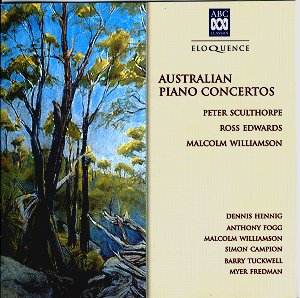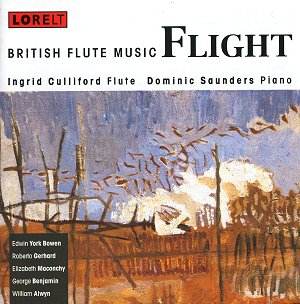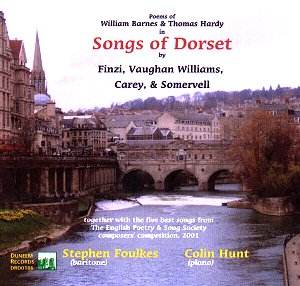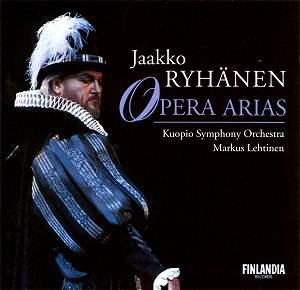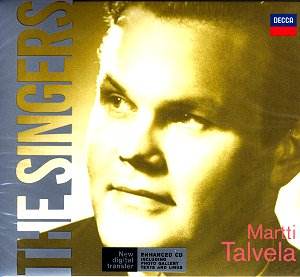 Composer: Marti Talvela
Composer: Marti Talvela
Works: Songs by Schumann, Mussorgsky, and Rachmaninov
Performers: Marti Talvela (bass), Irwin Gage and Ralf Gothoni (piano)
Recording: Berlin, Germany, 1969-1980
Label: Decca
Marti Talvela, a towering figure in the world of opera, is often celebrated for his commanding stage presence and vocal authority, particularly in the roles of Boris Godunov and Sarastro. This recording, part of Decca’s “The Singers” series, shifts the focus from his operatic triumphs to the more intimate sphere of art song, showcasing his interpretation of works by Schumann, Mussorgsky, and Rachmaninov. The selection of repertoire highlights not only Talvela’s vocal prowess but also his ability to convey nuanced emotion through song, despite the inherent challenges posed by his large, imposing voice.
The Schumann selections, particularly the cycle of twelve songs from Op. 35, present a mixed picture. Talvela’s robust bass voice struggles with the delicate demands of the soprano song “Stille Tränen,” where subtlety is paramount. The lack of tonal finesse in this performance diminishes the song’s inherent melancholy, as Talvela’s characteristic power overshadows the ethereal quality needed for such lyrical lines. In contrast, “Wanderlied” emerges as a more suitable vehicle for his artistry, where he effectively navigates the piece’s broad emotional landscape, showcasing both his vocal strength and lyrical sensitivity. It is in these moments that Talvela’s interpretive choices truly resonate, allowing the listener to appreciate his artistry beyond the grand operatic roles for which he is best known.
Transitioning to the Mussorgsky and Rachmaninov selections recorded in 1980, Talvela’s affinity for the Russian language becomes evident. His performance of “The Flea” and the “Songs and Dances of Death” reveals a deeper connection to the text, where the weight of his voice conveys the poignant narratives with both gravitas and clarity. Here, the technical aspects of his performance shine; the careful shading of each phrase and the dynamic contrasts he employs serve to enhance the dramatic impact of these songs. Ralf Gothoni’s piano accompaniment complements Talvela beautifully, offering a balance that allows the vocal lines to soar while maintaining a sense of intimacy. The recording quality is commendable, with a natural acoustic that captures the nuances of both singer and piano, providing a clear and engaging listening experience.
The presentation of this disc, featuring a multimedia element for those equipped to access it, adds an interesting layer to the listening experience. However, the absence of detailed track information, such as the operatic context of certain arias, may leave some listeners at a disadvantage. The booklet essay by John Steane, a respected authority on the singing voice, enriches the experience with insightful commentary, although the overall packaging feels somewhat idiosyncratic compared to the comprehensive nature of other labels.
Talvela’s recording is a testament to the duality of his artistry: the powerful stage presence that defined his operatic career and the more introspective qualities that emerge in the realm of song. While some interpretations may falter under the weight of his vocal heft, moments of transcendence do shine through, particularly in the Russian repertoire where his natural affinity and expressive capacity align seamlessly. This collection serves not only as a valuable addition to Talvela’s discography but also as an essential exploration of the complexities inherent in transitioning from opera to song, revealing the multifaceted nature of one of the great basses of the 20th century.
